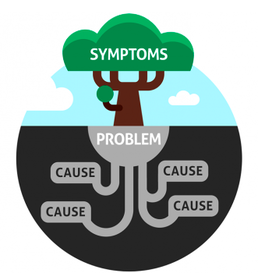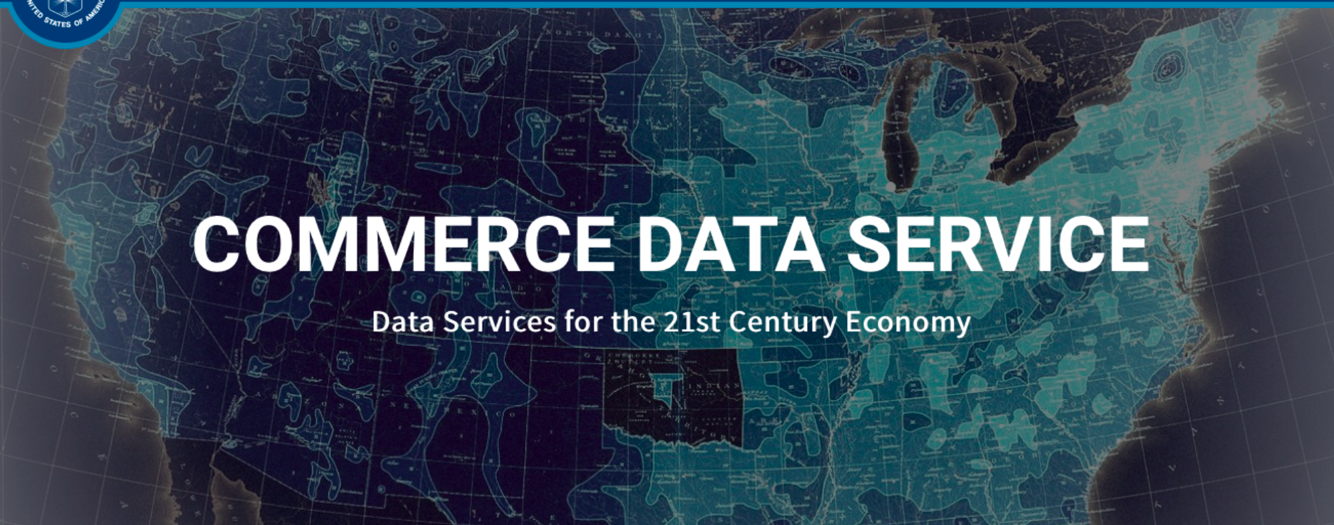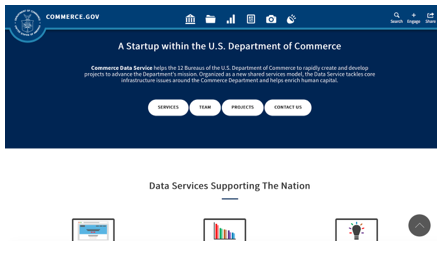|
The year is 2020 and NASA's Planetary Defense Coordination Office (yes, it's real) has notified the world that an Extinction Level Event (ELE) - let's say a series of asteroids moving quickly on a collision course - is projected to wipe out the Earth in three months. What should our response strategy be? Do we:
Unfortunately, neither Options 1 or 2 get you to a level of understanding of the root cause of the issue and instead of solving the problem, you most likely end up addressing a symptom.  For Option 1, the possibility exists that the asteroids you destroy are a sign of things to come and that there are bigger, faster, weird-behaving masses right behind them. So, taking this approach may only buy us time. For Option 2, because there are no early detection systems on this new planet, we could be buying a few more months (as other asteroids are barreling towards this new planet), we could be getting humanity out of harm's way, or we may be putting the human race in a worst situation (if there are structural issues that make the new planet a ticking time bomb). Option 3 - determining the root cause of the situation - requires calm, focused, objectivity on the What, Why? Where? Who? When? and How? Filling out the scenario with this information not only guides us to the correct path to take, but helps lessen the chances of unforeseen and unexpected subsequent issues. It is well-known insight in computer science that formulating the problem correctly is far more valuable than rushing to a solution based on surface facts about the customer's pain points. However, it has become obvious that far too few people spend time trying to determine the root cause of a problem. Over the past month, I have been reading an increasing number of articles promoting solutions to issues that simply put a controlled solution box around a symptom, rather than solve the real problem. Let's take two areas: the refugee crisis and the diversity crisis in tech. Refugee Crisis Here is the existing narrative with regards to the Refugee Crisis: Global migration has reached an unprecedented scale. Millions of people cross borders every year in search of new opportunities, carrying with them enormous potential to contribute to economic development, address demographic challenges, and foster global interconnectedness. But global migration also comes with pressing challenges. Many migrants undertake perilous journeys only to be exploited or face deportation. Women and children are illegally trafficked across international borders and sold into slavery. Even legal migrants are facing a rising tide of xenophobic backlash. Global refugee numbers are continuously rising as civil wars and conflicts rage on. Climate disasters and changing environment will further cause the displacement of hundreds of thousands of people. The current approaches to solving this issue revolves around answering the following questions:
But what is the root cause of this crisis? Political unrest, civil war, and gentrification stem from unbalanced and unjust economic models and incentive schemes that promote discord, strife and conflict at the micro level in service of (personal) profitability for a select few at the macro level. This inequality and the inability of a few to empathize with others and view them as a part of their family drives the conditions that produce environments where the weak and powerless have to flee; in hopes of increased safety and the possibility of better opportunities. Much of this knowledge and nuance is hidden from most. Much of this activity is (covertly) performed by the elected representatives and wealthy citizens of the countries that refugees migrate to. The public tends to be blissfully unaware. With this knowledge hidden, the general populous is provided with a narrative that paints a picture of a distant problem, in a distant land, involving “others” and completely divorced from themselves, leading to an influx of people that want to drain their resources, take what is theirs, and erode their quality of life and their way of living. The critical first steps in solving this is with education, increased awareness, and empowerment. Educating powerful stakeholders that there are fruitful and lucrative alternatives, which are better for everyone in the long run. Educating the general public on their role, whether knowingly or unknowingly, in creating these crises. Educating the residents of the country that refugees are migrating to on empathy, on the benefits of immigrants, and on demystifying the fears and myths that they hold. Educating the world that addressing the refugee crisis is about more than crafting solutions around the consequences of the problem, but rather creating fundamental and positive changes that address the sources of the issue. Diversity in Tech Sad to say that since I wrote this piece in June of 2015, it is still relevant and the majority of people don't seem to get it - systemic racism is the root cause for the lack of diversity in computer science. Apple's diversity number haven't changed (more here). Companies are still holding talking sessions between white male and white female leaders on Diversity in Tech (more here). The narrative of it being bigger than race, that we should take incremental steps, and start with white women first is still being pushed (more here, here, here, and here). Accelerators, social entrepreneurs, and social venture capitalists are still being heralded as "the path" forward (more here and here). It appears that it is too difficult for people to be thoughtful, introspective, and to objectively name the root cause - a system built to ensure that one community succeeds at all costs and at the detriment of all other communities. The system needs to be changed to be fair and equitable for all, and its "in-power" community members need to re-socialized. Without this crucial first step, we are putting bandaids on the symptoms and not fixing the root cause. We can create solution layers on top, but still won't stop managers from discriminating and hiding it. These symptom solutions will only lead to new and interesting manifestations of the root cause. Please re-read "Real Talk About Diversity in Tech" and be real with me and yourself as to the problems we need to be looking at. Where are you seeing people addressing the symptom and not the root cause (This post is also available on LinkedIn)
0 Comments
I just tried to load the website for the Commerce Data Service (http://www.commerce.gov/dataservice) and it redirected to http://www.commerce.gov, which means that the Service is officially dead. I have no idea when it was officially shut down. However, the last snapshot from the Way Back Machine was on July 31st, 2017. It kinda hurt. I had a moment. The startup that Jeff Chen and I founded and poured 100+ hour weeks into is no more. Rather than be sad, it is time to celebrate. As a team, we ran fast and we ran far. We created a program to teach Commerce employees human-centered design, agile software development, and data science. A program that is now a model adopted and used by other Federal agencies. We worked side-by-side with Commerce agencies to deliver over twenty solutions that improve their efficiency and highlight a new way to engage with vendors, staff, and the American public. We helped to spotlight and engage the private sector and everyday Americans on the power of the data that Commerce collects and makes available for free -- addressing everything from income inequality, to access to opportunity, to the school-to-prison pipeline for minority girls and women, to intellectual property innovation. We moved the needle on getting the technical infrastructure of the Department more aligned to best practices in today's information economy. The world outside of Commerce saw the work & its impact and publicly recognized the team through numerous awards. It was the best of times. It was the worst of times. Mostly, it was a helluva time. Cheers, to the Commerce Data Service (CDS) team. For more information on the CDS, see:
(This post is also available on LinkedIn)
|
Dr Tyrone Grandison
Executive. Technologist. Change Agent. Computer Scientist. Data Nerd. Privacy and Security Geek. Archives
May 2018
Categories |




 RSS Feed
RSS Feed
